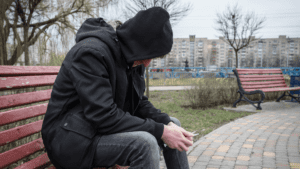Relapse is one of the biggest challenges in addiction recovery, but it doesn’t have to be inevitable. With the right steps, you can significantly reduce the risk of falling back into old habits. Let’s explore the top 5 steps for relapse prevention, covering everything from recognizing relapse triggers to using coping mechanisms and seeking relapse support when necessary.

1. Identify Your Relapse Triggers
A crucial part of how to prevent relapse is understanding your relapse triggers. These are emotional, social, or environmental cues that can lead to cravings or thoughts of using again. Common triggers include stress, arguments, isolation, or being in environments tied to past substance use. Whether you’re in Spokane or anywhere else, recognizing what sets you off is the first step toward preventing relapse. For those in the area, be mindful of local settings or social circles that could put your sobriety at risk.
2. Develop Strong Coping Mechanisms
Once you’ve pinpointed your triggers, it’s essential to develop healthy coping mechanisms. These might include exercise, meditation, attending therapy, or participating in support groups like AA or NA. For individuals who have attended drug rehab centers in Spokane, Washington, structured routines and coping strategies are a major focus. Building healthy habits will provide stability and reduce the likelihood of relapse.
3. Pay Attention to Relapse Warning Signs
Relapse doesn’t happen all at once; it’s often a gradual process. Recognizing relapse warning signs can help you take action before it’s too late. These signs may include withdrawal from social groups, emotional instability, or revisiting harmful environments or relationships. Keeping an eye on these indicators can help you prevent a slip-up. If you’re using services like Spokane treatment and recovery services, staying in touch with counselors can help you address these warning signs early.
4. Use Addiction Recovery Tips to Stay Sober
Abstinence is a key component of recovery, requiring commitment and self-discipline. For many, maintaining sobriety means making a daily choice to stay on track. Whether you’re just starting or years into recovery, abstinence involves actively avoiding triggers and resisting the urge to use. Combining abstinence with personalized strategies from rehab centers in Spokane can significantly improve your chances of long-term success. Whether you’re exploring Spokane detox programs or seeking treatment centers in Spokane, WA, these resources can guide you toward building a life of sustained sobriety.
5. Seek Relapse Prevention Support When Needed
Finally, remember that seeking relapse support is important. If you find yourself struggling, don’t hesitate to reach out for help—whether it’s from a counselor, a sponsor, or a rehab center in Spokane. Getting timely support can make all the difference between a momentary setback and a full relapse. Utilizing local resources like rehab in Spokane or other support services can keep you connected and accountable throughout your recovery journey.
Overcoming addiction requires dedication, support, and sometimes, professional help. Taking advantage of local resources in Spokane, Washington, and staying connected with recovery communities can make the journey easier. Stories of hope, such as those of individuals who have successfully overcome addiction, serve as powerful reminders that recovery is possible. Continuous learning and adapting through every phase of recovery will help you not only prevent relapse but also build a fulfilling and sober life.
By actively engaging with your relapse prevention strategies, identifying relapse warning signs, and using the tools provided by rehab center, you can significantly improve your chances of long-term sobriety. The path to recovery is unique for everyone, but with the right resources, overcoming addiction is possible.
Contact a treatment provider today if you need addiction treatment or help in your recovery.


